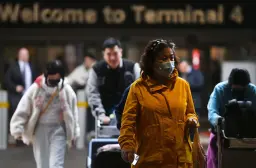Brighton Mutebuka, a lawyer from Zimbabwe who resides and works in the United Kingdom (UK), has raised concerns about children of divorced or separated migrants being unfairly denied entry into the UK due to not meeting the “sole responsibility” test.
Recently, UK Immigration Lawyers have seen an increase in cases where visa applications from children of migrants seeking to join their parents in the UK under Working Visa categories are being rejected more often than they should be. Mutebuka said when both parents are still married or living together as unmarried partners, the process is straightforward. They can either apply as a family or the children who are left behind can apply to join the parent who is already in the UK. He added:
The process becomes very complicated in situations of divorce, separation or children who are young adults and have just turned 18 before the visa application.
In such a situation, children from families where the parents are no longer together have to demonstrate that the parent that they are joining has got “sole responsibility”, which is a very complex concept under UK Immigration Law.
Many are oblivious at the point of application how complex this is.
It requires the parent that the child or children are joining to demonstrate that they have been responsible for making major decisions in the child’s life.
Mutebuka also mentioned some examples that are required to prove “sole responsibility” for the children. These examples include choosing their school, paying school fees, attending school meetings, choosing their religion, meeting their daily needs, choosing their doctor, and overseeing their education.
According to the law, the remaining parent must be deceased, have abandoned the children, or demonstrate exceptional circumstances for the children to be granted entry into the UK. Mutebuka says in many cases, applicants struggle to provide the necessary documents within a short period of time. The Home Office sometimes approves the visa for the main applicant but delays the children’s visas by requesting additional documents or explanations.
In some instances, the Home Office asks for a “consent letter” from the remaining parent in the country of origin. However, they then use this letter as a reason to refuse the children’s visas, even if other evidence suggests that the other parent is not involved in the child’s life. As a result, families are separated, which is heart-wrenching. The main applicant has to travel alone and start working while challenging the decision, leaving the children with strangers for months.
Mutebuka said these decisions can be challenged through Administrative Review. Unfortunately, the waiting period for a decision on such challenges is currently around 6 months or more, even in cases involving young and vulnerable children, some of whom have disabilities. Mutebuka believes that this injustice should not continue. He argues that the UK has clear international legal obligations through the human rights treaties it has signed.
Source Pindula News






